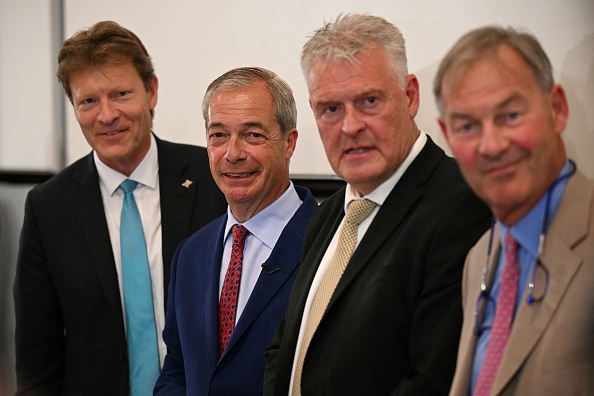It is a truth seldom acknowledged that politics is harder than it looks. Although it is the quintessential spectator sport, and though our rulers may seem maddeningly stupid, the reality is that most people are unlikely to do any better. Established parties are established for a good reason, and this is a lesson which Reform’s supporters, and its leadership, are learning the hard way.
A week ago, the very mention of Reform struck fear in the hearts of Labour and Tory hacks, as the insurgent party regularly topped polls. But over the last few days, it has suffered a very public split. In short, Rupert Lowe, one of Reform’s five MPs, criticised Nigel Farage in a Daily Mail interview in which he suggested that Farage may not be party leader at the next election. As the party’s second most prominent MP, it was not hard to guess who he had in mind as his replacement.
Farage first struck back with words; but on Friday Reform announced it had reported Lowe to the police on allegations that he had threatened violence against Zia Yusuf, the chairman of Reform. In addition, it said it was investigating Lowe for bullying. His whip was naturally suspended too. (Lowe energetically contests the allegations.) It does not take a conspiracy theorist to think that the timing of Reform’s accusations is not coincidental.
Reform is only experiencing what most populist parties tend to suffer at some point in their existence. To thrive, such a party needs to become professionalised, with procedures and staff and all the boring paraphernalia of a modern political organisation. But populist parties tend to attract the sort of person who dislikes managerialism, while repelling the professionals who keep mainstream parties on the road.
The result is that such parties tend to find it difficult to find good people to work for them and are prone to interpersonal drama, particularly when there are several strong personalities involved, which is almost invariably the case. The weakness of party structures also means that they tend to be highly personalistic affairs centred around a charismatic leader, in this case Nigel Farage, for whom parties are but vehicles for whatever happens to be his agenda at a given time.
Ironically, the lack of professionalism within Reform, in addition to the lack of a policy platform, was Lowe’s main grievance. Having been elected, he thought he would rather like to be in government one day, and was reportedly frustrated by the lack of seriousness in the ad hoc way things were run, which Lowe thought meant that Reform was failing to capitalise on its lead in the polls.
What happens next? Although Lowe has a large personal following, it is nowhere near Farage’s. Nor does he have much recognition among the non-chronically online. He may have to strike out on his own, maybe taking with him his supporters — or perhaps take over a small insurgent party. Reform will probably survive the fracas, although its aura of invincibility is gone.
Conservatives, meanwhile, will discreetly gloat. Although the Tories cannot claim to be particularly well-run or free from drama, the latest flare-up within Reform will be a good reminder to Right-wing voters and donors disenchanted with the Conservative Party that it still enjoys the services of a relatively professional group of people as well as centuries of accumulated experience and brand respectability.
In the short term, the risk of a coup attempt against Kemi Badenoch is probably also reduced, as fewer Tory MPs would want to emulate Reform’s public meltdown, at least for now. Four years is a long time, and it may be that Reform is getting the teething problems out its system before it really matters. On the other hand, if there is too much melodrama, it may disintegrate.











Join the discussion
Join like minded readers that support our journalism by becoming a paid subscriber
To join the discussion in the comments, become a paid subscriber.
Join like minded readers that support our journalism, read unlimited articles and enjoy other subscriber-only benefits.
Subscribe